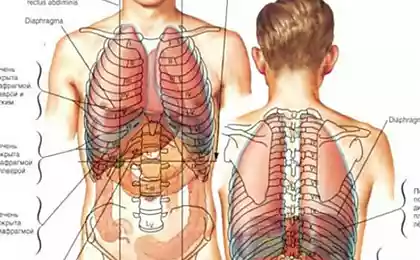348
Hidden depression: 11 habits of people who suffer internally

Introduction. The word “depression” is often associated with constant sadness, lack of energy, and a desire to isolate oneself from the world. However, in reality, a depressive state can proceed secretively and disguise itself behind a positive appearance, activity and an external smile. Such people can continue to work, communicate, joke – but inside their soul is like “wounded” and screams for help. Often they do not realize that they suffer from depression, because they do not fit into the stereotype: “If I do not lie in bed all day, then not depression.” But according to the American Psychological Association (APA), latent (or “atypical”) depression is no less common than classical, and its recognition requires attention to a number of seemingly imperceptible signs.
In this article, we will look at 11 typical habits and behavioral patterns of people who may be experiencing deep suffering but are trying to stay afloat. Understanding these signals helps not only to realize your own state, but also to lend a helping hand to those who are afraid to show their vulnerability. At the same time, we will not be rigidly tied to a specific date or events, so that the information remains relevant in the long term.
What is hidden depression?
Hidden depression (or high-functioning, atypical) is characterized by the fact that a person retains more or less normal activity in a social and professional environment. He can go to work, do everyday things, even seem “initiative” and “fun.” But behind this mask lies a constant feeling of dissatisfaction, anxiety, loss of joy in life and deep emotional pain.
According to experts, people with hidden depression are often afraid of judgment and do not want to “burden” others with their problems. Instead of seeking help, they choose a “continuing” strategy that can have serious mental and physical health consequences.
1. Constant fatigue, not explained by external factors
One of the first “habits” or conditions is chronic fatigue, which seems to come from nowhere. The person looks full of energy, but inside feels that the strength is running out by the middle of the day. He can even sleep for 8 hours, but wakes up broken and unrested.
- Why is this a sign? With depression, albeit hidden, the body experiences constant stress, which affects the hormonal balance (cortisol, serotonin, norepinephrine) and inhibits “healthy” recovery.
- What to do: If fatigue does not pass and does not fit into “reasonable explanations” (overwork, insomnia, illness), you should pay attention to the emotional side.
2. Excessive optimism and an attempt to amuse everyone
At first glance, it seems strange: how can optimism be a sign of depression? But some people try to compensate for inner suffering with overplayed “joy” and humor. They are always ready to keep up the conversation, joke, avoid heavy topics, as long as no one suspects their melancholy.
- Example: A person who is always in the company of the “holiday soul” can retire alone and stop smiling as soon as everyone is gone.
- Why this happens: Fear of appearing “weak” or becoming a burden to friends makes you “hide” real feelings behind the hypercompensation of fun.
3. Too late “delays” at work or school
Not every workaholic suffers from depression, but for people with hidden depression, immersion in work can be a way to escape painful thoughts. They take overtime assignments, stay in the office until the night, constantly busy with projects to fill the void and keep thoughts of their own vulnerability from surfacing.
- Key feature: It’s not so much that people like the work itself as it is important to “not have free time” to think.
- Danger: “Running to work” without rest can lead to burnout and aggravate mental state.

4. Constant self-irony or understatement of one’s own accomplishments
People with latent depression often experience an inferiority complex, although they may appear confident. They may joke about themselves, devaluing their successes: “Nothing so special,” “It was just an accident,” “I didn’t deserve that praise.”
- Hint: Healthy self-irony is the “salt” of character, but if a person does it constantly and excessively, perhaps he thus understates himself, containing inner pain.
5. Hiding your problems and not being able to ask for help
Often, people with latent depression do not talk about their difficulties to either friends or relatives. They are afraid to appear weak or doubt that anyone will understand them. As a result, with external cordiality, there is a colossal loneliness inside.
- Why it matters: The lack of open discussion of problems hinders the recovery process and prevents the possibility of receiving support.
- Manifestations: A person avoids questions: “How are you?” with evasive answers, changes the topic, does not allow “dig” in the soul.
6. Sharp mood swings
People with latent depression can experience a “swing”: from an elevated mood to a sudden loss of strength. However, in public they try to maintain a “stable picture”, so sharp changes can manifest themselves only in the circle of the closest or, conversely, alone.
- Council: If you notice such “emotional failures” in yourself or a loved one, you should think about the reasons: isn’t this a mask that hides inner pain?
7. The desire for perfectionism in everything
Perfectionism can be a way to control reality when there is chaos inside. People with latent depression want “everything to be perfect” because it gives them a sense of order and security.
- Minus: Expectations of unrealistic perfection create constant stress and only increase internal conflict.
- Manifestations: Continuous self-criticism ("I have to do better"), anxiety at the slightest mistake, heavy feelings of guilt for "imperfection."

8. Avoidance of confrontation and hypertrophied “kindness”
People with latent depression often avoid conflicts and try to please everyone. They are afraid that by showing negative emotions, they will “load” others or “lose” love and recognition. Therefore, they prefer to agree, although they may feel irritation or pain inside.
- Manifestations: The person always smiles, says yes, avoids arguments, tries to be comfortable for everyone.
- Caution: Such kindness can be a symptom of deep insecurity and fear of rejection.
9. Using humor as a shield
Humor is a great way to deal with stress. But some people with latent depression use jokes and sarcasm to distract attention from their real feelings. Funny comments and the ability to defuse the situation become the main weapon that hides internal chaos.
- Example: A person can laugh and joke in company, and when left alone, his mood drops sharply.
- The flip side: If the joke serves only to “hide” discomfort, in the end, the pain still does not go anywhere, but only suppressed.
10. Feelings of “desperation” in external well-being
Most people with depression are convinced that they have no “right” to suffer, especially if everything looks “good” – work, family, health. The result is an inner conflict: “Why do I feel bad when I have everything?”
- Statistics: Studies show that depression does not necessarily correlate with objective life circumstances: it can overtake both poverty and external success.
- Council: If “there is no reason to be sad”, but sadness haunts, this is a wake-up call that you need to understand deeper into your emotions.
11. Overeating or excessive control of nutrition
Another sign of latent depression is an unhealthy attitude towards food. Some eat stress and emotions, while others try to tightly control the diet to “keep themselves in control.” Both paths signal an internal attempt to find a support or outlet.
- Frequent scenario: A person can “lean” on sweet or fast food in the evening, justifying this “I am so tired, you need to please yourself.”
- Alternative: See a psychologist or dietitian to form healthier eating strategies and learn to differentiate emotional hunger from physical hunger.

What to do if you find these habits in yourself or in loved ones
Hidden depression can go unnoticed for a long time, masquerading as normal activity and even cheerfulness. But its consequences are sometimes more devastating than with open forms, because a person does not receive support and treatment in time. If you recognize yourself or your loved ones in these 11 signs, it is worth considering:
- Contact a specialist: A psychotherapist or psychologist will be able to diagnose and offer tools to overcome the crisis of silence.
- Talk to others: If you feel ready, share your doubts with friends or family. Support for loved ones is an important factor in recovery.
- Allow yourself to rest and solitude: Burnout, especially emotional, increases the tendency to depression. Take the time to "reset."
- Introspection: Keep a diary, practice mindfulness, recognize and name your feelings. This creates the basis for a more honest internal dialogue.
- Regulate lifestyle: Sleep regimen, moderate exercise, balanced diet, refusal of excessive control or overeating.
The main message: there is nothing shameful in admitting the presence of inner suffering, even if outwardly everything is fine. Depression is a disease, not a “caprice.” With timely diagnosis and suitable methods of therapy, high chances of full recovery and return to the joy of life. People who openly admit their vulnerability end up stronger than those who mask pain and see depression as a sign of weakness.
Understanding the habits of latent depression allows you to notice red flags in time - in yourself or loved ones. Knowledge is half the way to change. Be more attentive to your body and mind signals, feel free to seek help, and remember that openly discussing emotional issues is the first step to healing.
Happiness is a Habit: 8 Ways to Be Happier, Proven by Science and Life
11 Bible Quotes That Inspire Change























